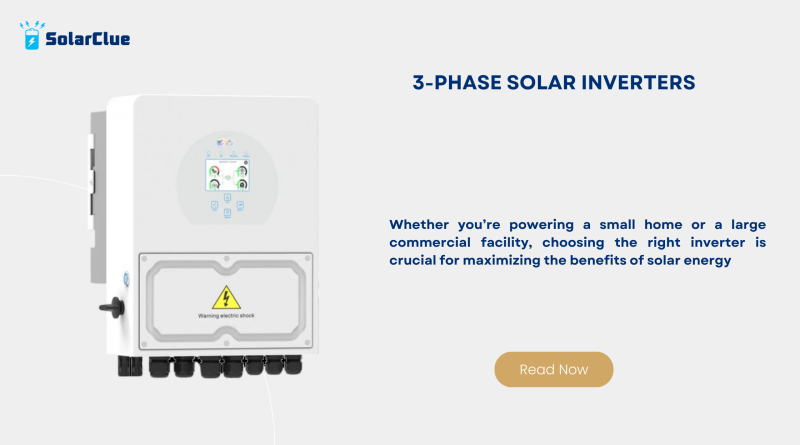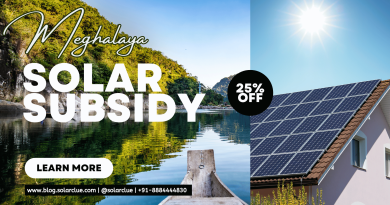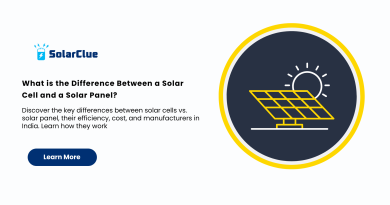3-Phase Solar Inverters
Hey there! If you’ve ever thought about switching to solar energy for your home or business, you might have come across the term “3-phase solar inverter.” It might sound a bit technical, but don’t worry—we’re here to break it down in simple terms and explain why it’s important for harnessing solar power effectively.
Table of Contents
What is a Solar Inverter?
Before diving into 3-phase inverters, let’s first understand what a solar inverter is. Simply put, a solar inverter is a device that converts the direct current (DC) electricity generated by solar panels into alternating current (AC) electricity. AC is what powers most of the appliances in our homes and businesses.
In other words, without an inverter, the electricity your solar panels produce wouldn’t be usable for everyday needs. So, this little device plays a crucial role in making solar energy practical for us!
The Basics of 3-Phase Power
Now, let’s talk about what makes a 3-phase solar inverter different. First, it’s helpful to know a bit about 3-phase power. This is a type of electrical power distribution used mostly in commercial and industrial settings. It’s a way to deliver more power more efficiently compared to single-phase power, which is commonly used in homes.
Imagine electricity like water flowing through pipes. In single-phase power, you have one pipe delivering water. In 3-phase power, you have three pipes working together to deliver a steadier and more reliable flow. This is why 3-phase power is often used in businesses where high power loads are needed.
What is a 3-Phase Solar Inverter?
A 3-phase solar inverter is designed to convert the DC power from your solar panels into AC power in a 3-phase electrical system. This kind of inverter is particularly useful for larger solar installations, such as those found in commercial buildings or farms.
In a 3-phase system, the power is split into three separate phases that work together. This means the inverter has to handle more complex tasks than a single-phase inverter, but it can also manage larger loads more effectively.
Why Use a 3-Phase Solar Inverter?
You might be wondering, “Why not just use a single-phase inverter?” Well, here are a few reasons why 3-phase solar inverters might be the better choice for some situations:
1.Higher Efficiency: 3-phase inverters can handle larger power outputs and are generally more efficient in converting solar power for high-demand systems.
2.Better Balance: In a 3-phase system, power is more evenly distributed. This means there’s less risk of overloading a single phase, which can happen in a single-phase system.
3.Reduced Losses: Because power is spread across three phases, there’s less strain on each individual phase, leading to reduced electrical losses and better overall performance.
4.Improved Reliability: 3-phase systems are typically more reliable and stable, which is crucial for commercial and industrial applications where downtime can be costly.
How Does a 3-Phase Solar Inverter Work?
Let’s dive a bit deeper into how a 3-phase solar inverter operates. Here’s a simplified explanation:
1.Solar Panels Generate DC Power: Your solar panels convert sunlight into DC electricity.
2.DC Power Goes to the Inverter: This DC power is then fed into the 3-phase inverter.
3.Inverter Converts DC to AC: The inverter takes this DC power and converts it into AC power. In a 3-phase inverter, this involves creating three separate AC outputs that are 120 degrees out of phase with each other.
4.Power Distributed Across Phases: These three outputs are then used to power the three-phase electrical system, providing balanced and stable electricity to your appliances and machinery.
Comparing Single-Phase vs. 3-Phase Solar Inverters
To give you a clearer picture, let’s compare single-phase and 3-phase solar inverters in a table:
| Feature | Single-Phase Solar Inverter | 3-Phase Solar Inverter |
|---|---|---|
| Power Handling | Suitable for residential use | Ideal for commercial/industrial use |
| Efficiency | Generally lower for large systems | Higher efficiency, especially in larger systems |
| Load Distribution | Less balanced | More balanced, reducing strain on each phase |
| Cost | Usually less expensive | Typically more expensive, but worth it for large installations |
| System Reliability | Can be less stable for high loads | More stable and reliable for high-demand systems |
Choosing the Right Solar Inverter
So, how do you decide which type of solar inverter is right for you? Here are a few things to consider:
1.Size of Your Installation: If you’re setting up a solar system for a large commercial building or an industrial site, a 3-phase inverter is likely your best bet. For residential installations, a single-phase inverter might be sufficient.
2.Power Needs: Evaluate how much power you need to generate and use. For higher power requirements and better efficiency, 3-phase inverters excel.
3.Budget: 3-phase inverters are generally more expensive, so make sure to balance your budget with your power needs.
4.Future Growth: If you anticipate needing more power in the future, investing in a 3-phase inverter now might save you from having to upgrade later.
Installation and Maintenance
Whether you choose a single-phase or 3-phase inverter, proper installation and maintenance are key to ensuring your solar system runs smoothly. It’s essential to have a professional install your inverter to ensure it’s set up correctly and safely. Regular maintenance checks can help identify and fix any issues before they become major problems.
Conclusion
So, there you have it—a straightforward guide to understanding 3-phase solar inverters. By now, you should have a good idea of what they are, how they work, and why they might be the right choice for your solar power needs.
Whether you’re powering a small home or a large commercial facility, choosing the right inverter is crucial for maximizing the benefits of solar energy. If you’re still unsure which type of inverter is best for you, consider reaching out to a solar energy professional who can provide personalized advice based on your specific needs.
Switching to solar is a big step, but with the right information and support, it can be a smooth and rewarding process. Happy solar hunting!
Feel free to drop any questions you might have in the comments below or reach out if you need more details.
Visit SolarClue® to see the best Solar Inverters. SolarClue® actively sells solar energy products at discounts of up to 50% on its online marketplace.




